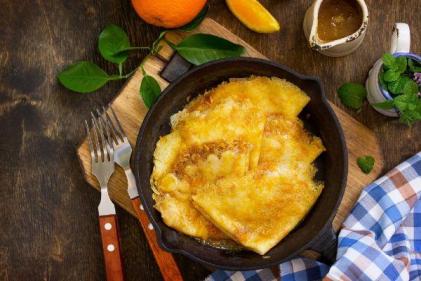 Pre-menstrual syndrome (PMS) affects approximately 70 to 90% of women and describes any symptoms that occur after ovulation and disappear almost as soon as the period arrives.
Pre-menstrual syndrome (PMS) affects approximately 70 to 90% of women and describes any symptoms that occur after ovulation and disappear almost as soon as the period arrives.
Symptoms include mood swings, irritability, anxiety and tension, bloating, breast tenderness and swelling, water retention, acne, tiredness, weight gain, headaches/migraines, and many more. Indeed, the personality changes associated with this time of the month can be very severe, with some women describing a ‘Jekyll and Hyde’ change, in which they literally become a different person.
It is assumed that PMS has an effect on a woman's general health but what if the situation is really the other way round? In other words, what if that woman’s general health is causing PMS to occur in the first place?
If a woman has not been eating well, is lacking in certain vitamins and minerals, is not exercising, or is suffering from stress and generally feeling run down, it is very possible that her body’s ability to produce the right balance of hormones and to utilise those hormones properly each cycle will be seriously compromised.
Here are my top tips for beating PMS include;
Controlling blood sugar levels
Of all the different dietary changes, this is the most crucial one for eliminating PMS. The higher the sugar content of the diet, the more severe the pre-menstrual symptoms, so sugar should be eliminated completely. In addition, eating little and often is important to keep blood sugar levels even and stop adrenaline being released. Adrenaline blocks the uptake of progesterone in the second half of the cycle.
Of all the different dietary changes, this is the most crucial one for eliminating PMS. The higher the sugar content of the diet, the more severe the pre-menstrual symptoms, so sugar should be eliminated completely. In addition, eating little and often is important to keep blood sugar levels even and stop adrenaline being released. Adrenaline blocks the uptake of progesterone in the second half of the cycle.
Cut down on alcohol
Alcohol should be eliminated or drastically reduced to give the liver a rest so that it can detoxify and excrete old hormones efficiently and also help with blood sugar fluctuations.
Alcohol should be eliminated or drastically reduced to give the liver a rest so that it can detoxify and excrete old hormones efficiently and also help with blood sugar fluctuations.
Avoid caffeine
If breast tenderness is the main pre-menstrual symptom, caffeine in any foods or drinks should be avoided. The active ingredients in caffeine are called methylxanthines and they have been proven to increase problems with painful, lumpy and tender breasts.
If breast tenderness is the main pre-menstrual symptom, caffeine in any foods or drinks should be avoided. The active ingredients in caffeine are called methylxanthines and they have been proven to increase problems with painful, lumpy and tender breasts.
Increase consumption of omega 3
Period pains are caused by substances called prostaglandins. Many prostaglandins are healthy; however, some increase your body’s sensitivity to pain, can cause your muscles to spasm and also create inflammation. What you eat during the month can decrease or increase the levels of these “bad” prostaglandins. Increasing the amount of Omega 3 fatty acids in your diet and in supplement form help your body to produce good, anti-inflammatory prostaglandins instead.
Period pains are caused by substances called prostaglandins. Many prostaglandins are healthy; however, some increase your body’s sensitivity to pain, can cause your muscles to spasm and also create inflammation. What you eat during the month can decrease or increase the levels of these “bad” prostaglandins. Increasing the amount of Omega 3 fatty acids in your diet and in supplement form help your body to produce good, anti-inflammatory prostaglandins instead.
Increase magnesium
Classed as 'nature's tranquilliser,' magnesium is vital in managing symptoms that relate emotional states such as anxiety, tension and irritability, as well as menstrual migraines. Women with PMS have been found to have lower levels of red blood cell magnesium than women who don't suffer symptoms. Food sources include dark green leafy vegetables, pumpkin, sesame seeds, nuts, figs, apricots, garlic and prawns. Supplementation of magnesium can also be extremely useful in alleviating symptoms, especially when taken alongside vitamin B6.
Classed as 'nature's tranquilliser,' magnesium is vital in managing symptoms that relate emotional states such as anxiety, tension and irritability, as well as menstrual migraines. Women with PMS have been found to have lower levels of red blood cell magnesium than women who don't suffer symptoms. Food sources include dark green leafy vegetables, pumpkin, sesame seeds, nuts, figs, apricots, garlic and prawns. Supplementation of magnesium can also be extremely useful in alleviating symptoms, especially when taken alongside vitamin B6.
Try these dietary changes and see what difference they make to your PMS. For more tips on managing PMS the natural way, visit our website on www.glenvillenutrition.ie.







